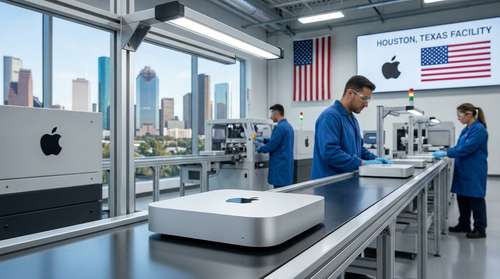There's been a rising conversation among doctors, scientists, and families about whether it's possible—and ethical—to test embryos for autism. The idea alone is enough to spark intense debates, pushing us to examine the overlap between advanced genetic testing and deeply personal decisions about family planning. As technology advances, we find ourselves walking a fine line between science and ethics.
Many of us have heard about prenatal dna testing and ancestry dna tests, and the thought of unraveling secrets hidden in our genes is fascinating. But the question now is: can these techniques really be used to check your dna for autism traits before birth? The potential for genotype testing in embryos raises hopes and fears alike.
While the science behind polygenic embryo screening continues to evolve, opinions remain divided. Some argue that early detection could empower parents with more choices, while others see it as a slippery slope toward eugenics. It’s a conversation steeped in complexity and emotion.
The Science Behind Polygenic Embryo Screening
In this section, we delve into the scientific principles and methods behind genetic testing for traits like autism. The discussion centers on whether current technology can accurately predict the likelihood of developing a condition as nuanced as autism through polygenic risk scores.
The technology behind dna testing for embryos involves analyzing multiple genetic markers along with environmental factors. It resembles solving an intricate puzzle where each piece of DNA holds a clue, but the picture is far from complete. Although genetic testing can highlight certain risk factors for autism, it is not a definitive or standalone method to diagnose the condition.
While prenatal genetic testing is highly effective in detecting monogenic conditions, autism is a polygenic condition influenced by a variety of genes. This makes it similar to trying to predict the weather with too many variables. The current research indicates that while we can test your dna for potential risks, certainty remains elusive, highlighting that these tests are more about probabilities than definitive answers.
Another challenge is that autism exists on a spectrum, which means that even with an estimated risk based on genetic testing, the severity and nature of the condition can vary greatly. With tools like ancestry dna test or my heritage dna, people have seen the potential of genetic insights, but applying similar methods to diagnose autism is still in its infancy.
Ethical and Societal Considerations
The discussions here are more than just technical. They touch on ethics, personal beliefs, and societal values. Is it moral to choose embryos based on a risk profile for autism? Many wonder if doing so could lead to unforeseen social repercussions.
There is a significant ethical debate behind choosing to test embryos for traits like autism. Some fear that such testing may lead to discriminatory practices, where embryos with certain genetic profiles are discarded or given less value. This worry is echoed by numerous experts in both genetics and ethics who suggest that the essence of our humanity is in its diversity.
Moreover, performing genotype testing on embryos might also affect how society accepts neurodiversity. If doctors could test embryos for autism and then parents make decisions based on the results, we risk inadvertently devaluing individuals with autism. Imagine a world where each unique trait is weighed against a checklist of imperfections—that's a future many of us find troubling.
Beyond the echoes of historical misuses of genetic information, families might face significant emotional burdens. The pressure to test your dna and decide based on probabilities could lead to more anxiety and uncertainty, not to mention the moral complexity when it comes to prenatal care decisions. In essence, these advancements in prenatal screening challenge our traditional values about acceptance and care.
Can They? Should They?
This section tackles the central question: Is it even feasible to test embryos for autism, and if so, should it be done? It’s a debate that touches on scientific capability as well as moral judgment.
Current research indicates that while it is technically possible to test embryos for markers associated with autism, the accuracy of these tests is debatable. Often, the outcome is a probabilistic risk rather than a clear-cut yes or no. Much like when you try to check your dna to see if you might be predisposed to a certain health condition, the test offers clues rather than certainties.
The ethical argument, however, is even murkier. Many worry that offering such tests could lead to a form of genetic 'selection', influencing decisions based on incomplete information. When you consider the value of prenatal care vitamins and the importance of comprehensive prenatal care, it makes you question if the benefits of such screening truly outweigh the potential harm.
On one hand, proactive screening could allow parents to prepare better for the challenges ahead, similar to how some parents use ancestry dna tests to understand their heritage. On the other hand, the societal cost, in terms of potentially stigmatizing neurodiversity, could be immense. The moral weight of such decisions, not unlike those involved in choosing prenatal vitamins for a healthy pregnancy, needs careful, measured consideration.
It becomes clear that while there is scientific curiosity and technological advancement in this area, the decision to test embryos for autism involves deep philosophical and ethical dilemmas. Should we harness these new abilities to predict future traits, or should we let embryos develop without the shadow of genetic fate looming over them?
The Future of Embryo Testing and What It Means for Families
This final section gives us a glimpse of what the future might hold if testing for autism in embryos becomes routine. It’s not just about science - it’s also about our collective future as a society.
Looking ahead, the expansion of genetic testing could radically transform how families prepare for the future. Parents could be armed with information from the moment of conception, much like checking your dna to understand your own genetic makeup. But this also raises the question: what happens when decisions are made based on probabilities rather than certainties?
Some parents may use such insights to guide supportive and early interventions, while others might find themselves wrestling with ethical concerns. The process is reminiscent of deciding on a course of prenatal care vitamins—there are best practices and recommendations, but ultimately the choice is deeply personal and laden with implications.
Experts in the field emphasize that autism, with its rich spectrum and unique challenges, requires a nuanced approach. Instead of viewing these genetic markers as a verdict, they argue that they should be seen as one element among many in prenatal care. The aim should be to provide parents with comprehensive information rather than a definitive prediction.
In the end, the decision on whether doctors should test embryos for autism is not just scientific—it’s profoundly moral. The underlying principle must be the value of human diversity and the understanding that every individual, regardless of genetic predispositions, has potential and worth.
As we navigate these uncharted waters, it’s essential that society continues to have open and honest conversations, weighing the promise of technology against the ethics of human life. This debate reminds us that even with the best scientific practices, empathy, and understanding remain at the heart of prenatal decision-making.




